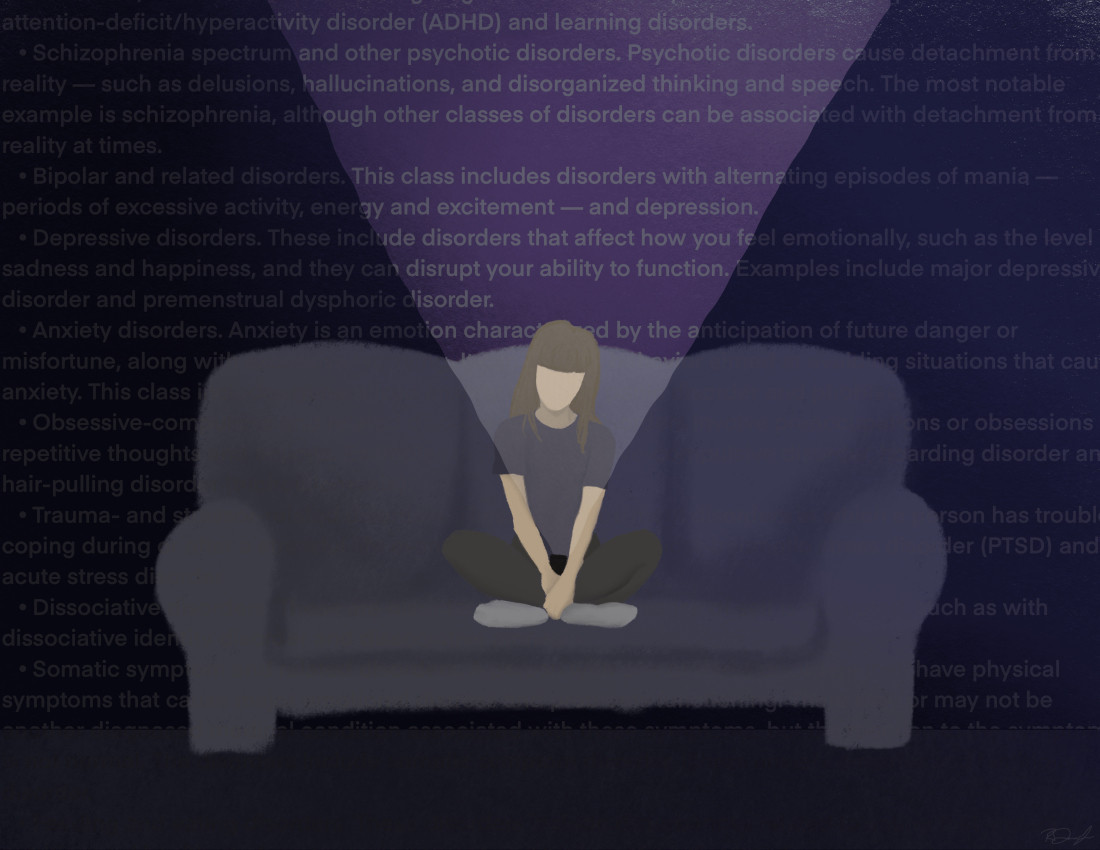Social diagnosis
TikTok algorithm flooding users with mental health content
Illustration by Rebecca Driedger
Emmalee Blackadar, a recent graduate from Red River College Polytechnic, found she saw an increase in videos about ADHD and anxiety on her For You Page over the course of the COVID-19 pandemic.
The For You Page (FYP) is one of two spaces to see content on TikTok. It shows viewers videos and ads that may or may not be from people they follow but is created “For You” – or at least for individuals interested in the same things.
“I was in counselling and looking into ADHD and anxiety. Then I started getting more videos about them,” Blackadar says. “My FYP was filled with ‘put your finger down’ videos on ADHD and anxiety.”
TikTok thrives on users following trends, sometimes with a twist. The “put your finger down” trend came from the game Never Have I Ever, where the viewer, or listener, puts a finger down when they have indeed done something or had the experience stated.
This trend turned from sharing average life experiences to a way to self-diagnose mental or physical disorders.
“I already thought I had ADHD or anxiety due to experiencing some of the symptoms. The videos made me want to find a concrete answer about what I was experiencing,” Blackadar says.
“I think that it’s great that conversations are taking place on social media about mental health. This helps destigmatize mental-health conditions and raise awareness,” Emily Mendez, a mental-health author and expert, says. “However, there is also a ton of misinformation. I have read many social-media posts and watched TikTok and YouTube videos where the information presented was completely wrong.”
Mendez founded Priceless Copy, a creative agency focused on online mental-health and wellness content. She mentioned that some of the erroneous content can receive thousands of likes and views, which may be harmful.
“I think it’s really important for creators to avoid making claims about mental-health issues that they are not familiar with,” Mendez says.
She stresses that both psychology and mental health are complicated, which is why therapists and psychologists receive so much training.
“There is a lot of really great information on mental health being provided by professionals in the field. I do recommend following accounts by creators who have credentials in mental health,” Mendez says.
“But, it’s really important to remember that TikTok, Twitter or Instagram (do not equal) therapy. Even if the information presented is factual, it might not be helpful to the person’s specific situation. Anyone who is concerned about their own or a family member’s mental health should talk to a mental-health professional who can help them.”
Published in Volume 76, Number 24 of The Uniter (April 7, 2022)






